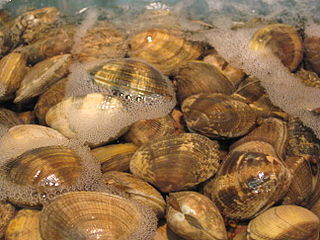 TRUJILLO, PERU—A new study of clamshells recovered from Moche graves indicates that frequent cycles of El Niño, followed by flooding and droughts, may have been a factor in the collapse of the Moche’s agricultural society. Cold ocean water is rich in nutrients and carbon, which is taken up by clams as they grow. During an El Niño, warm, nutrient-poor water replaces the cold water. These changes in carbon levels can be tracked in clamshells. “The people adapted but did it in a way that was uncomfortable. They faced a series of challenges and dealt with them in ways that must have been difficult, and unpleasant,” speculated geologist Fred Andrus of the University of Alabama. Scholars think that the resulting social upheaval required so many changes that the culture was eventually “transformed.”
TRUJILLO, PERU—A new study of clamshells recovered from Moche graves indicates that frequent cycles of El Niño, followed by flooding and droughts, may have been a factor in the collapse of the Moche’s agricultural society. Cold ocean water is rich in nutrients and carbon, which is taken up by clams as they grow. During an El Niño, warm, nutrient-poor water replaces the cold water. These changes in carbon levels can be tracked in clamshells. “The people adapted but did it in a way that was uncomfortable. They faced a series of challenges and dealt with them in ways that must have been difficult, and unpleasant,” speculated geologist Fred Andrus of the University of Alabama. Scholars think that the resulting social upheaval required so many changes that the culture was eventually “transformed.”

